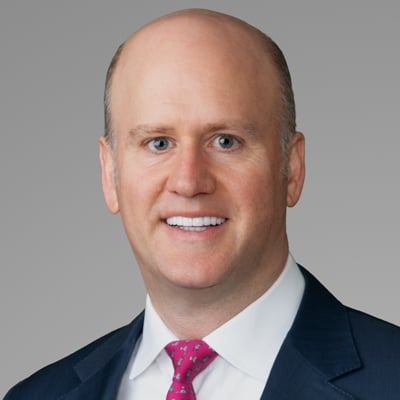How Elite Law Firms Cash in as PE Funds Go Big
There are an increasing number of private equity funds raising billions of dollars rather than millions, but experts say only a handful of law firms have proven they are capable of handling the complex, demanding and ever-changing requirements necessary to land such coveted gigs.
This month alone, Advent International closed a $13 billion global buyout fund, Partners Group AG netted $2.83 billion for a private equity secondaries fund, Accel Partners raised $2 billion for a set of tech startup-focused funds, and Morgan Stanley Infrastructure nabbed $3.6 billion for an infrastructure fund. The bevy of billion-dollar funds has many law firms salivating at the prospect of landing such a client, but experts say only a select few firms are up to the task.
"There's a relatively small universe of private equity fund managers that can form these funds, and as a result that means there's a relatively small number of law firms that work on them," said David Watson, a partner at Goodwin Procter LLP.
The firms that have demonstrated their ability to be called upon for these enormous funds have done so by adapting to a private equity landscape that is in a near-constant state of transformation, according to John O'Neil, a partner at Kirkland & Ellis LLP.
"If you went to sleep 10 years ago and woke up today you'd be completely out of your league because the fundraising climate is just so different," O'Neil said.
Kirkland, which assisted Waud Capital Partners LLC as it raised money for a $1.056 billion fund that closed late last month, is one of the law firms that has gotten huge funds across the finish line, and other firms that have handled some of the largest funds include Goodwin Procter and Debevoise & Plimpton LLP, which acted as legal counsel to Advent and Morgan Stanley Infrastructure, respectively, on the above-mentioned funds.
The fundraising environment has changed a lot over the past decade because of an uptick in necessary disclosures along with more intense regulation, so it has become more integral than ever for private equity firms to know they are in good hands with whatever legal counsel they choose, attorneys say.
"The key for these clients is to find an outsourced legal solutions provider that can help take the process off their plate," said Andrew Wright, another Kirkland partner.
And with the heightened regulatory environment private equity is now operating in, law firms raising these massive funds have to be even more aware of what authorities might be looking for because the bigger the fund, the bigger the target on your back.
"Today, the regulatory framework is just a much more crucial part of fundraising than it ever was before," said Jon Adler, a Debevoise & Plimpton partner. "These are the funds where there's going to be a spotlight.”
Though many private equity players have scaled up their investor relations and business development teams to be more on top of all the aspects involved with fundraising, they need to feel confident that their legal counsel has the requisite resources and experience to help them accomplish their goals, attorneys say. In today's world it’s simply not as simple as deciding how much you want to raise and why you want to raise it then contacting the entities you think will be interested in contributing.
"You have to have all that covered under one law firm," O'Neil said.
"We are now in an environment with an intense level of complexity in terms of everything from global regulation to transparency in disclosure and more," Wright added. "All of this leads to a much more complex, labor-intensive process."
Only firms that are capable of deploying large teams of attorneys at the drop of a dime, for any given purpose and at any point during the fundraising, will be tapped to tackle the largest funds, according to the Kirkland attorneys.
"You need to be able to run the entire process and respond to investors on a real-time, 24/7 basis," Wright said.
"People talk about that, there's a lot of puffery about [being available] 24/7, but we really do it," Wright added, explaining that there have been times where Kirkland flew attorneys back and forth to offices in Asia and Europe when the situation called for it.
Meanwhile, even firms with the most highly respected reputations can't just rest on their laurels, awaiting phone calls from private equity firms in need of legal counsel. Part of the reason the firms that land such big-time funds get the gig is because they actively engage with their clients, even during lulls in actual business.
"It's not this sort of periodic relationship," Wright said. "We have ongoing relationships. We're continually in discussions with these types of clients."
Firms would do well to do more than just reach out to ask when they might be needed, however. They should be scouring the marketplace to determine what a client's next best step might be, he explained.
"Because we are proactively prompting them with discussion, it causes clients to say, 'Yeah, that's something we are thinking about,'" Wright said.
"Having a deep, advisory relationship helps build long-term partnerships,” he added.
No matter how proactive your law firm is, though, you’ll never land the job advising on a billion-dollar fund unless you have a significantly developed practice that features attorneys whose sole focus is private equity fundraising, according to Adler.
"These are very difficult types of funds to work on as a part-time job," Adler said. "They aren't the type of funds that an M&A or capital markets lawyer that dabbles will be able to handle effectively."
For firms hoping to eventually be a part of the billion-dollar fundraising scene, their best bet is to start focusing on private equity fundraising in addition to building their in-house practice and developing relationships with clients, attorneys say. Chances are you aren’t going to snag a major client away from someone else, Watson said, unless there’s a drastic change such as their current legal counsel failing to properly prioritize them.
"The highest likelihood of success is to pay very close attention to all of your clients and hope one of them becomes a big fund manager some day," Watson said. "Provide high-quality service to those clients as they grow."


